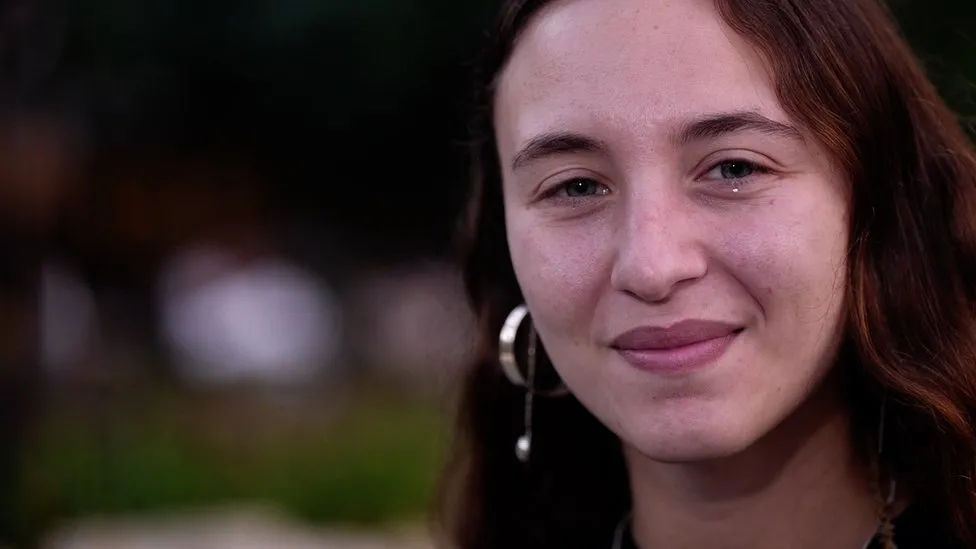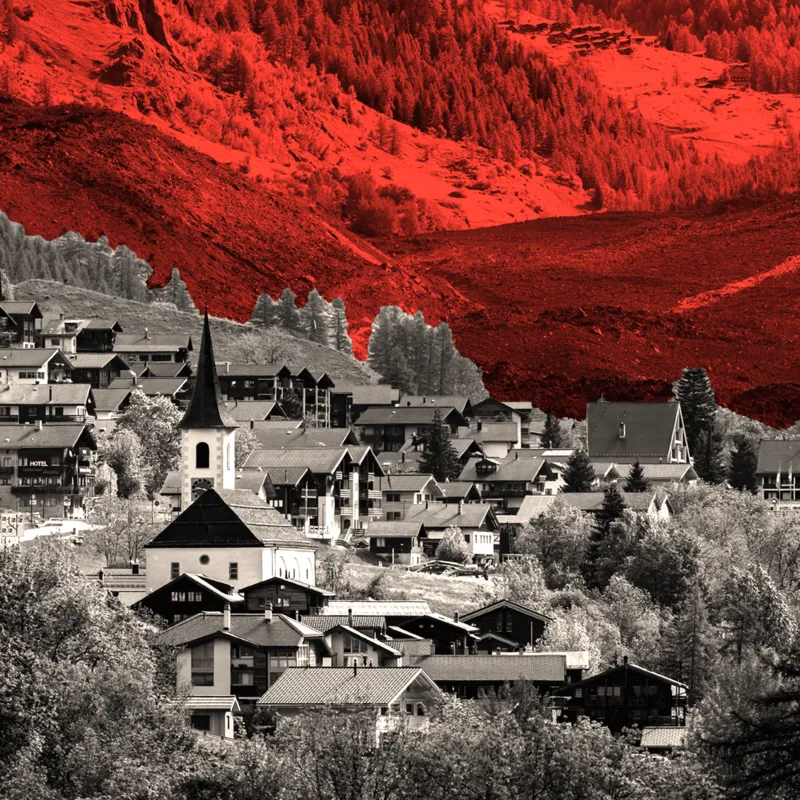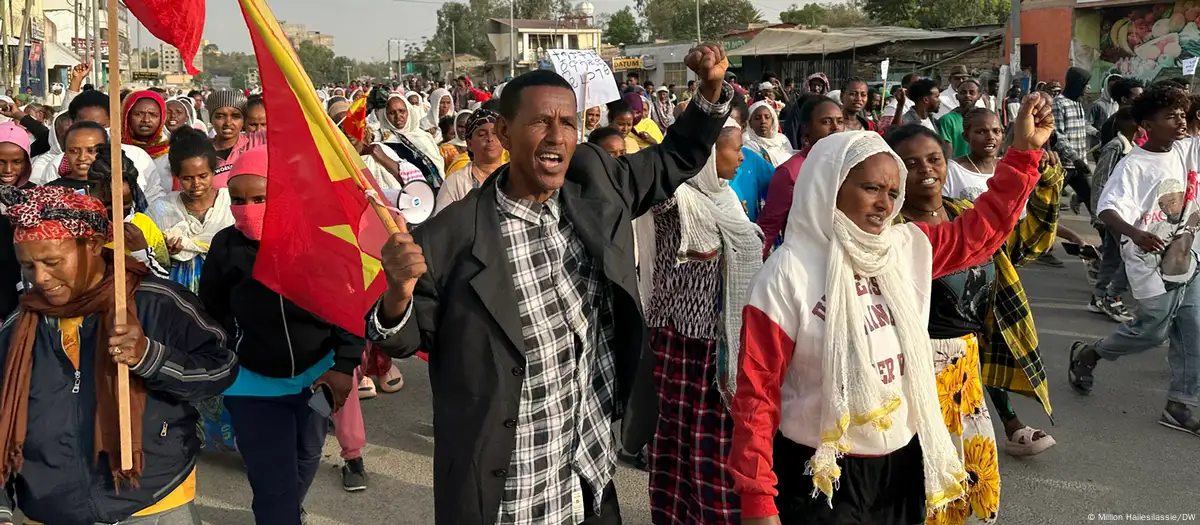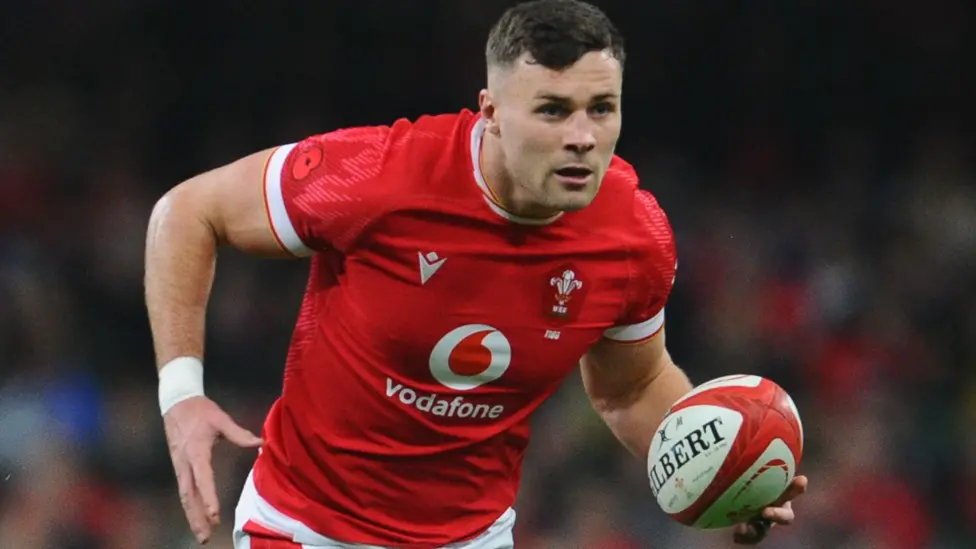Bringing broken survivors of the Israel Nova festival attack back from darkness
"You can cry here," the sign reads in pale blue lettering on a clean white background.

Beyond it, comfortable sofas piled with cushions are screened off from the rest of the room. It's a safe, private corner where survivors of the Nova music festival can be with others who went through the same ordeal on 7 October, and get the mental health support many of them desperately need.
More than 360 young partygoers were shot, beaten or burnt to death by Hamas attackers, who stormed the festival site near the Israel-Gaza perimeter fence early that morning. Another 40 were taken hostage.
First, social media posts showed panicked crowds fleeing from rockets fired from Gaza and gunmen on the ground. Later, distressing videos from first responders began to confirm the scale of the massacre, as they filmed scores of murdered partygoers.
In the following days, Dr Lia Naor realised that - unlike those who'd been evacuated from their nearby kibbutzim - the young people from the festival who lived through the ordeal didn't have a community already around them to give support.
So she built one.
"I just wanted them to be held," Dr Naor explains.
"They were so fragmented and so frozen. Then there was the brokenness of faith that they that had felt - there'd been nobody there for them, not their parents, not the army, not the police. Nobody was there to save them. So the first thing was just getting them to feel secure and in a healing space."
The outdoor setting in Rishpon, north of Tel Aviv, is sheltered and peaceful. The early December days have been warm in Israel, and people sit on colourful beanbags scattered across the grass. A timetable is propped up showing the range of workshops that day, from mosaic making to sound baths. There's massage, group music, and singing sessions.
A few placid dogs roam through the group, waiting to be stroked or begging for food. One tiny, black-haired crossbreed chihuahua has a pair of silver wings on its back, drawing coos of appreciation. It's a different scene from the early days.
"Even though their bodies were whole, we saw how broken they were and that their eyes were hollow," Lia remembers. "They didn't look alive. They couldn't look at us. They would shake, they couldn't eat, they couldn't drink. The evil that these people met is incomprehensible.
"I told them early on, 'As dark the darkness is that you saw, we're going to bring the light. We're going to help you believe in yourselves and in others again.'"
This place is a huge collective effort, but it hasn't been driven by the state.
Everybody here is a volunteer giving their time for free and hoping to heal themselves too. The homemade food spread out on low tables is donated by charities and businesses. Everyone wants to do something to help in the aftermath of one of Israel's darkest moments.
Survivors of Hamas's attack on the Nova festival talk at a therapy centre set up in Rishpon, in central Israel
Image caption,
Survivors have been meeting volunteer therapists to talk about their experience
Lior Gelbaum is a Nova survivor. I compliment her on the tiny jewels she's stuck under each eye, sparkling in the light, and she tells me they make her feel festive again. The 24-year-old from the city of Petah Tikva is coming here regularly to get support and give out handmade silver necklaces to others who were there that day.
She remembers it well.
"At 06:30 in the morning, we started hearing rockets flying above our heads," she tells me. "We know the drill, so we got into our car and started driving away, but there was a traffic jam. We started hearing gunshots above our heads, so we got out and just started running towards the open field. We didn't know where we were going or what was happening, we just heard automatic gunshots all around us. Two people, Yehuda and Galit, had a big car and got us inside it and away. They saved us."
Lior also talks about the importance of music to her healing process.
"Everyone that was at the Nova festival, we love to dance, we love to be together. After the massacre happened, it was important for the community to get back together and to strengthen each other, to be with each other and talk and feel our emotions."
But she says she's been struggling to enjoy something which is a huge part of her identity.
"It's been hard for me to listen to music since the Nova festival, and still I only feel comfortable listening to music at concerts with the artists that come to this place," Lia says.
Above the seating area, a huge garden stretches up a low hill. It's framed with trees laden with citrus fruits and row after row of bushy herbs, the rosemary and sage scenting the air.
The survivors often walk through it and pick the leaves to turn into herbal teas. Nature is a big part of this place. The need for space is so great that new rustic tents are being built to make room for the hundreds of people who are now coming here.
Dr Itamar Cohen is one of them. He flew in from London as soon as he could after 7 October.
I ask about the stories he's heard. He breathes deeply, then answers.
"People here have seen a tremendous amount of pain. Some of them were extremely close to not being here any more. Some were chased and had to run for their lives. There wasn't much time to process that, just running away from a massacre. And now they still need to function, and they still need to go and push through."
There's another element too.
"A lot of people are experiencing some sort of grief, they lost tens of their friends at one time. And there's guilt. 'Why am I the one who survived and not my friend? I should have picked up more survivors inside my car to drive them to safety.' So a lot of thoughts around, 'I am not really worthy of being saved and I could have done better.'"
Dr Cohen tells me that being around other therapists at a dark time helps them all.
"We have time to see together, to process and to speak about the challenges and our vulnerabilities, and our fears and sense of guilt. It means we have a space to work that through and to strengthen each other, and it helps me as well, tremendously."
-bbc







